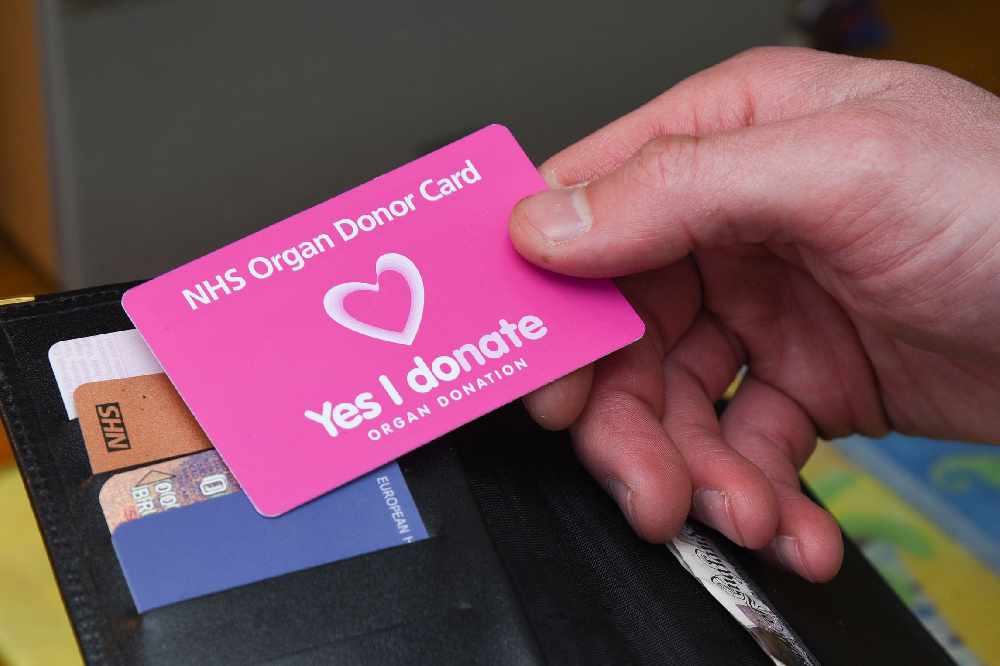
A Wolverhampton based organisation has received a share of £600,000 funding as part of the Government’s commitment to tackle health inequalities in Black and Asian communities.
The announcement of the funding aims to address the shortage of organs, particularly kidneys, for those waiting for a transplant from all Black, Asian, mixed heritage and minority ethnic backgrounds. Whilst also highlighting the need for more blood donors from a black background, whose blood is used to treat patients with conditions like sickle cell.
The Community Investment Scheme, which is led by NHS Blood and Transplant, will fund local organisations to drive awareness, understanding and behaviour change. Having previously only focussed on promoting organ donation, the scheme has now been opened to include projects which also highlight the importance of blood donation.
For many patients in need of a transplant the best match will come from a donor from the same ethnic background. In the UK there are currently estimated to be at least 2,569 people on the waiting list for a kidney transplant and 580 of those are from Black, Asian or minority ethnic backgrounds. Kidney donors and recipients are matched by blood group and tissue type, and people from the same ethnic background are more likely to have matching blood groups and tissue types.
Black, Asian and minority ethnic patients often have to wait significantly longer for a successful match than white patients, due to a shortage of suitably matched donors.
For the first time, NHS Blood and Transplant opened up the Community Investment Scheme to include projects and organisations to include blood donation. This was to develop grassroot connections and work with trusted voices and organisations who can help address barriers and normalise blood donation within Black African and Black Caribbean communities.
Sickle cell is currently the fastest growing genetic disorder in both the UK and the wider world. People from Black African or Black Caribbean backgrounds are most likely to have this condition which can often require frequent, life-saving blood transfusions. For those reliant on regular transfusions, it is essential that they receive blood matched as closely as possible to their own. A match is most likely to come from a donor of the same ethnicity, yet currently only 1.5% of donors in England are Black. This January has seen a record number of blood donor registrations from the Black community but twice as many are still needed to meet the growing clinical need.
There is also an increased demand for some rare blood subtypes, such as Ro, that are more common in Black people. More blood donors from a Black background are needed as these subtypes are important when someone has regular transfusions as they need blood that matches their own as closely as possible to reduce the risk of potentially life-threatening transfusion reactions.
The organisation who has received funding as part of the Community Investment Scheme is the University of Wolverhampton whose aim is to raise awareness of organ donation within the Sikh Community.
University Researchers, with the guidance of NHS Clinical Teams, will commission artwork and digital media work that promotes the recent organ donation law change. Dr Opinderhit Kaur Takhar MBE, Director of the Centre for Sikh and Panjabi Studies, said:
“Awareness of organ donation is much needed within the Sikh community. Being based in Wolverhampton, which has the second largest Sikh community outside of London, puts us the ideal location to make a real impact.
“The Centre for Sikh and Panjabi Studies, based at the University of Wolverhampton, has excellent connections with the Sikh community both regionally as well as nationally. Having the expertise in understanding Sikh teachings, beliefs and ethics, we will use these to highlight how the Sikh faith supports organ donation.”
Since its launch in 2018, the Community Investment Scheme has supported 43 organisations to deliver 50 community-led projects. With around 4,000 people engaging in conversation or taking away a leaflet or information on the importance of organ donation and 8,000 attended a talk or workshop.
There is hope that the introduction of Max and Keira’s Law – the new law relating to organ and tissue donation in England – which came into effect on 20th May 2020, will lead to an increase in the number of donors of all ethnicities. However, families will still be consulted before donation goes ahead so it remains essential to raise awareness, challenge misinformation and encourage those supportive of organ donation to talk with their families. Altaf Kazi, Head of Faith and Belief Engagement at NHS Blood and Transplant, said:
“Through the Community Investment Scheme we have seen first-hand the abilities of trusted individuals and community groups to prompt conversation, tackle misinformation, educate and offer reassurance around organ donation and now blood donation.
"Often a person’s best donor match will share their ethnicity, but too many donation opportunities are missed because families haven’t discussed organ donation, and Black and Asian people are seriously underrepresented when it comes to donating blood.
“We are asking more people from Black and Asian communities to find out about both blood and organ donation and help us to address the inequalities that many members of these communities may face. By giving your support you can help save lives.”
For more information about the Community Investment Scheme visit nhsbt.nhs.uk/cis or email community.funding@nhsbt.nhs.uk.














Comments
Add a comment